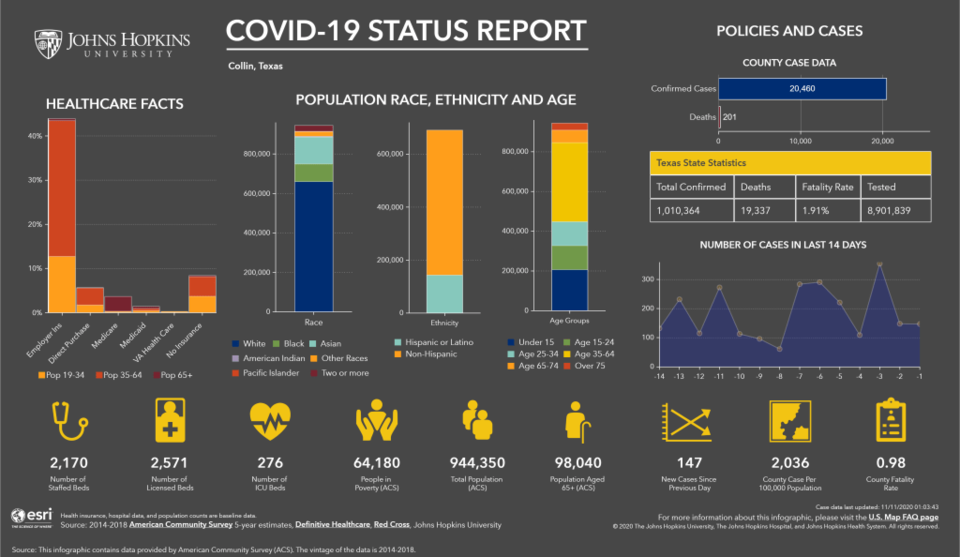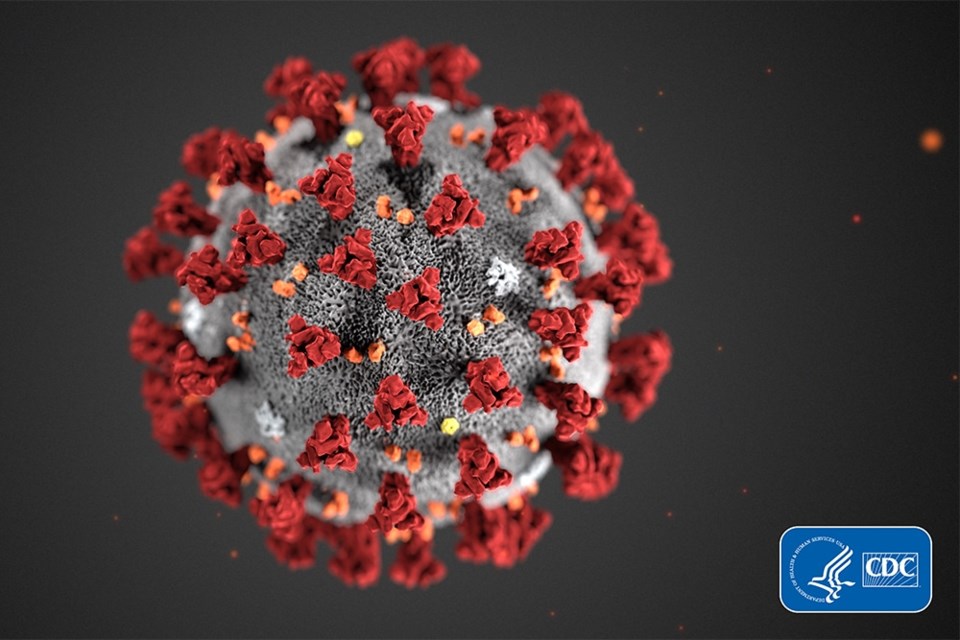In a Tuesday afternoon McKinney City Council meeting, there was only one public comment. “I’d like to send condolences to a McKinney resident who passed away from COVID-19,” a man said, using over a minute of his comment time for a moment of silence in honor of the deceased.
This latest death comes on a tide of some dire news. Texas has—unfortunately—passed one million COVID-19 infections, according to Johns Hopkins University, the first US state to hit that dubious milestone.
As Texas struggles with another COVID-19 spike, Collin County Commissioners Court is removing most of the data from the county’s official COVID-19 dashboard. is being taken down for inaccuracies. In an Oct. 12 meeting, Commissioner Darrell Hale said he feels the dashboard has “run its course,” and removing it was “ a step toward normalization [of COVID-19].”
McKinney is keeping its own COVID-19 dashboard for its residents, built on information from the state, and is also working on a way to report "city-driven data that is being coordinated by Medical City Hospital that will have hospitalizations."
“It’s a priority because the community is asking for it,” Mayor Fuller says. “As a matter of fact, the majority of the community wants this information and believes that it is important.”
Perhaps that’s because the Lone Star State now accounts for 10 percent of the country’s 10 million plus positive tests, and on Tuesday, health officials reported 10,865 new coronavirus cases, breaking all single-day records for the state since the pandemic began. State health data also indicates that coronavirus patients make up nearly 10 percent of Texas’ total hospital capacity.
Across the nation, people hoped that following summer temperatures and mask guidelines, the pandemic would have ebbed by now. There have been increasingly loud calls to return to normal and reopen the economy, and most businesses at this point have reopened, albeit with new structures and services designed for contactless interaction.
But in some places—namely El Paso, Lubbock, and Amarillo—COVID-19 is spinning out of control. In one day, El Paso officials reported 14 new COVID-19 deaths.
According to Johns Hopkins, Collin County has reported 20,460 total cases, which is 2,460 more people than would fit in Allen’s Eagle Stadium. Of those cases, there have been 201 deaths from COVID-19. Collin County's fatality rate is currently 0.98 percent. For the state of Texas, the fatality rate is 1.91 percent.
Symptoms remain varied. “We know several people now sick with COVID-19, some with mild symptoms, some with lingering symptoms after 3 weeks, and one who is fighting for his life in a local ICU,” one resident wrote on Collin County Judge Chris Hill’s Facebook page in late October when Judge Hill announced his positive COVID-19 test.
Though Collin County's dashboard is down, and McKinney’s will only account for the city, there is still the Johns Hopkins dashboard, which can be filtered by county.

However, hope is on the horizon. On Monday, the U.S. Food and Drug Administration (FDA) authorized a new way to combat COVID-19 symptoms and prevent hospitalizations. It’s an antibody drug by Eli Lilly & Co., called—prepare yourself—bamlanivimab. It is approved for patients at high risk of severe COVID-19, people 65 and older, or those who have pre-existing medical conditions.
Lilly & Co. is shipping approximately 80,000 doses of bamlanivimab across the country at no cost to the states and is expected to have up to one million doses by the end of the year, Gov. Greg Abbott’s office says.
In addition, Pfizer recently announced that its COVID-19 vaccine candidate achieved incredible success in an early analysis — demonstrating over 90 percent efficacy in preventing COVID-19. It is expected to become available as soon as late November.
With this Nov. 10 announcement, Abbott promised “swift distribution of vaccines and medical treatments that will begin to heal those suffering from COVID-19, slow the spread of the virus, and aid in reducing hospitalizations of Texans.
"The State of Texas is prepared to quickly distribute those medicines to Texans who voluntarily choose to use them.”
Update 11/13: In a previous version of this article it was stated that McKinney's dashboard was new, which is untrue. We apologize for the error.




